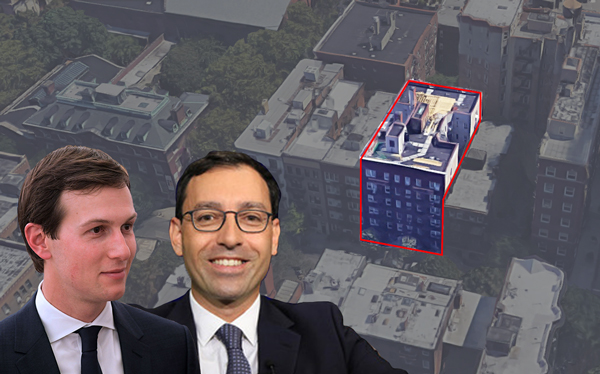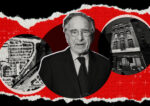Trending
Kushner Companies hit with rent-stabilization lawsuit in Brooklyn Heights
"Ignorance, indifference or utter disregard of the law."

Kushner Companies violated rent-stabilization laws at a building the company owns in Brooklyn Heights, a new lawsuit alleges.
The lawsuit, which seeks class action status, comes at a time when the company is already facing scrutiny over its ownership and management of a massive multifamily portfolio with hundreds of rent-stabilized units across the city, and puts a further spotlight on Jared Kushner, the former CEO of the firm and top White House adviser who continues to hold a stake in the Brooklyn Heights property.
For years, the 48-unit apartment building at 89 Hicks Street was a servant to institutions. It was first converted to religious housing for the Jehovah’s Witnesses in 1989, and later became a dorm for Brooklyn Law School. In 2014, it was picked up for $14.3 million by Kushner Companies, which was on its way to becoming one of the biggest players in the borough.
According to the complaint, apartments at the building had for more than two decades enjoyed a temporary reprieve from the burdens of rent stabilization, due to a law that makes exceptions for buildings used for institutional purposes, such as for schools, hospitals or religious organizations. With the Kushner Companies acquisition, the building went back into the private sector, and the building’s apartments were required to become rent-stabilized again. But Kushner Companies did not comply with that requirement, according to the lawsuit, filed Tuesday in Kings County State Supreme Court, and instead leased many apartments in the building at market rates.
After the Kushner Companies’ acquisition, the legal rent for the apartments would have to revert back to what they were before the building received the reprieve, according to state rent laws. In the case of at least one apartment, the year of reset was 1991, meaning that the legal rent for the apartment would be a fraction of what the market-rate rent in tony Brooklyn Heights is today.
The tenants are demanding monetary damages equivalent to the amount of rent overcharge, plus interest.
Lucas Ferrara, a partner at Newman Ferrara who is representing the tenants in the suit, said the laws were clear.
“There are only three possible explanations for the abuses we have uncovered here,” he said. “Ignorance, indifference or utter disregard of the law. We suspect the latter.” Ferrara said he brought the lawsuit after the Housing Rights Initiative, a nonprofit group that has organized many recent rent-stabilization suits against major landlords, brought the 89 Hicks situation to his law firm’s attention.
A representative for Kushner Companies said that “we are reviewing the lawsuit.” The company, which has a sprawling portfolio of multifamily holdings in New York and across the Northeast, has been accused in the past of flouting rent-stabilization laws.
According to Jared Kushner’s most recent White House financial disclosures from July, Kushner retained a personal interest in 89 Hicks Street through KF-BLS Member, LLC, an asset made up of numerous other LLCs, including 89 Hicks Street, LLC. The value of Kushner’s interest in the KF-BLS Member is listed in the disclosure as being between $500,000 and $1,000,000. He continues to hold significant stakes in properties such as the Puck Building in Soho and the Dumbo Heights complex.
Last month, The Real Deal published a detailed look at Kushner Companies’ compliance with the rent-stabilization laws across its multi-family portfolio and found that the state recently intervened at a building in Williamsburg, where the company failed to properly register more than 40 apartments. A portfolio-wide analysis revealed that hundreds of apartments in its residential portfolio have disappeared from rent-stabilization rolls in recent years.
The company has been accused of harassment of its rent-stabilized tenants in the past. At a number of its East Village properties, tenants have accused the company of using interior construction as a tactic to push them out. More recently, the company is said to be the subject of a federal investigation into how it solicits Chinese investments in its real estate projects through the EB-5 visa program.




